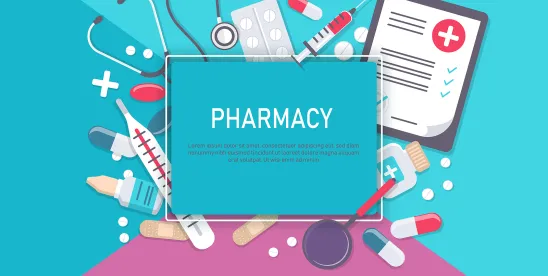Over the last two and a half years, the management of the 340B program has increasingly come under legislative and regulatory scrutiny as hospitals and manufacturers dispute the role of contract pharmacies. As we’ve previously written, the 340B Drug Pricing Program allows 340B entities to purchase outpatient drugs at discounted prices from manufacturers. 340B hospitals often contract with outside retail pharmacies (or “contract pharmacies”) to dispense 340B drugs to “patients.” Manufacturers have argued that contract pharmacies increase the likelihood that manufacturers would pay duplicate discounts, which occurs when a manufacturer offers both a discounted 340B price and a Medicaid drug rebate for the same drug.
Federal law prohibits duplicate discounts; however, manufacturers have historically struggled to identify them, an issue that has only grown since the Affordable Care Act extended Medicaid drug rebates to Medicaid managed care. As a result, in 2020 and 2021, several manufacturers instituted policies to restrict the ability of contract pharmacies to obtain drugs at 340B prices, arguing that these restrictions were necessary to avoid paying duplicate discounts. These actions resulted in the Health Resources and Services Administration (HRSA) issuing several violation letters against manufacturers claiming that these contract pharmacy restrictions violate the 340B statute. Several manufacturers subsequently challenged HRSA’s authority to issue the violation letters in federal court, notching victories in the Third and DC Circuits. A lawsuit filed by Eli Lilly is awaiting a ruling in the Seventh Circuit.
Prompted by the federal court rulings, states have increasingly stepped in to ensure that 340B entities can continue to utilize contract pharmacies by enacting “pharmacy access” laws, which prohibit drug manufacturers from restricting 340B entities from using contract pharmacies. The first two states to enact such laws were Arkansas in 2021 and Louisiana in 2023, followed by Maryland, Kansas, Minnesota, Mississippi, Missouri, and West Virginia in 2024. In the first half of 2025, Colorado, Idaho, Nebraska, New Mexico, North Dakota, South Dakota, Tennessee, Utah, and Oregon, among others, have also enacted pharmacy access laws. While manufacturers have responded with a flurry of lawsuits and well-funded lobbying campaigns, their success in halting implementation and enforcement has been mixed. For example:
- In 2021, Arkansas’s 340B pharmacy access laws were challenged by the Pharmaceutical Research and Manufacturers of America (PhRMA) and the district court ruled in favor of the state. In March 2024, the Eighth Circuit upheld Arkansas’s law and subsequently denied PhRMA’s request for a rehearing. In December, the Supreme Court refused to hear PhRMA’s appeal.
- In June 2024, a federal district court rejected challenges from AstraZeneca and AbbVie against Mississippi’s law. This lawsuit has since been appealed to the Fifth Circuit.
- In December 2024, a federal court issued a preliminary injunction in favor of PhRMA and the manufacturer Novartis, prohibiting West Virginia from enforcing its pharmacy access law.
- In December 2024, AbbVie and AstraZeneca also dropped lawsuits challenging Kansas’s law after the state attorney general announced that it did not “prohibit or forbid” manufacturer restrictions on contract pharmacies.
- The Michigan legislature adjourned in 2024 before passing a pharmacy access bill that was considered to have strong momentum.
- Manufacturers have filed a flurry of lawsuits in response to pharmacy access bills enacted in 2025.
- In June 2025, AstraZeneca filed a federal lawsuit against Nebraska Attorney General Michael Hilgers, seeking to block the state’s newly enacted contract pharmacy access law.
- In July 2025, PhRMA and AbbVie sued Hawaii over its 340B contract pharmacy access law, with PhRMA additionally filing suits in Vermont and Colorado.
Furthermore, AbbVie and Novartis have challenged several pharmacy access laws, including in Oklahoma, Rhode Island, and Oregon. After AbbVie challenged a Missouri law, a federal judge dismissed the lawsuit, claiming that it lacked standing.
Despite the extensive litigation noted above, the legal battle over these state laws appears to be just beginning. Pharmacy access bills have been introduced in Hawaii, Rhode Island, Connecticut, New York, and Illinois, among other states, and it is likely that states will continue to join this growing list in 2025. States enacting legislation will likely continue to face manufacturer challenges, which will ultimately allow the courts to decide the legality of 340B contract pharmacies going forward.






 />i
/>i

